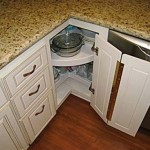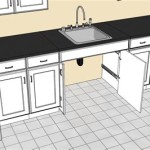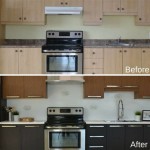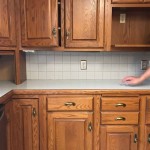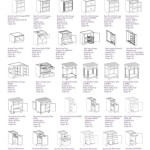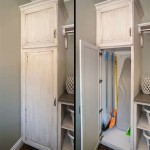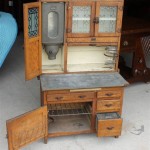Can You Paint Kitchen Cabinets with a Brush?
When it comes to refreshing the look of your kitchen, painting your cabinets is a cost-effective way to transform the space without breaking the bank. However, you may wonder whether it's possible to achieve a professional-looking finish using just a brush.
The answer is yes, it is possible to paint kitchen cabinets with a brush. However, it requires careful preparation and a bit more patience than using a sprayer. Here are the essential aspects to consider when painting kitchen cabinets with a brush:
1. Choose the Right Brush
Selecting the right brush is crucial for a smooth and even application. Opt for a high-quality synthetic brush with soft, nylon bristles. Natural bristle brushes can absorb moisture, which can lead to streaks.
2. Clean and Dry the Cabinets
Before you start painting, it's essential to thoroughly clean the cabinets to remove any dirt, grease, or debris. Use a degreaser or TSP (trisodium phosphate) cleaner to remove all traces of oils and grime.
3. Sand and Prepare the Surface
Sanding the cabinets creates a smooth, even surface for the paint to adhere to. Use a fine-grit sanding pad or sandpaper to lightly sand the surfaces. Wipe away any sanding dust with a tack cloth.
4. Prime the Cabinets
A primer creates a barrier between the paint and the raw wood, ensuring better adhesion and a more durable finish. Apply a thin coat of high-quality primer and allow it to dry thoroughly.
5. Use a Brush-On Paint
Not all paints are suitable for brush application. Choose a brush-on paint specifically designed for cabinets. It should be thick enough to provide good coverage but not too thick that it becomes difficult to apply evenly.
6. Apply Multiple Thin Coats
To achieve a smooth and durable finish, apply multiple thin coats of paint. Allow each coat to dry completely before applying the next. This prevents runs and drips and ensures a consistent finish.
7. Brush with the Grain
When brushing, always follow the direction of the wood grain. This helps prevent brush strokes from becoming visible and creates a more professional-looking finish.
8. Pay Attention to Edges and Details
Take extra care when painting the edges and intricate details of the cabinets. Use a smaller brush to get into tight spaces and prevent paint from dripping or bleeding.
9. Protect the Cabinets
Once you're happy with the finish, protect your newly painted cabinets with a clear polyurethane topcoat. This will provide extra protection against scratches, wear, and tear.
Conclusion
Painting kitchen cabinets with a brush requires time and patience but is a rewarding project that can drastically enhance the look of your kitchen. By carefully following the essential aspects outlined above, you can achieve a professional-looking finish without the need for a sprayer.

Should I Use A Brush Or Roller To Paint Cabinets Upvc Sprayers

How To Paint Kitchen Cabinets Diy Painting

Paint Your Cabinets With The Right Brush Diy Painting Cabinet Doors N More

Brush Paint Or Spray Kitchen Cabinet Sprayworks

How To Paint Cabinets With A Brush And Get Perfect Finish Addicted 2 Decorating

How To Limit Drips And Brush Strokes While Painting Kitchen Cabinets Image Ie

How To Paint Kitchen Cabinets Without Fancy Equipment

What You Need To Know Before Painting Cabinets The Palette Muse

Professional Spray Paint Vs Brushing Your Kitchen Cabinets

How To Paint Kitchen Cabinets In 7 Simple Steps
Related Posts

